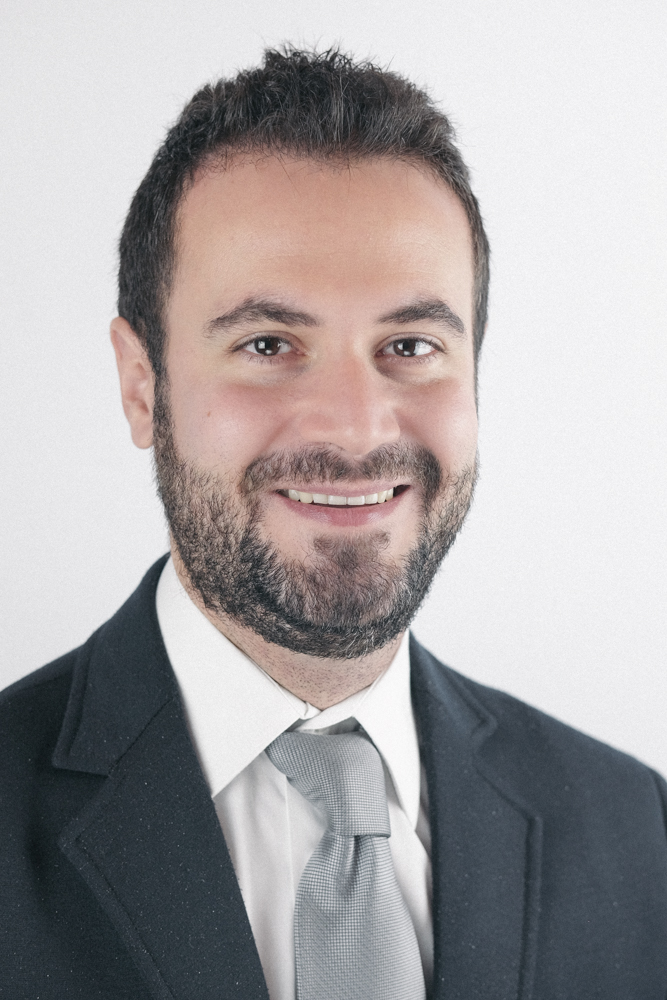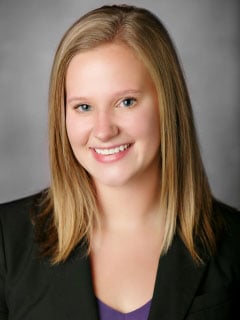
Every hotelier schemes ways to boost their hotel profitability. From poring over data to scouring competitors and hoping the room rates are the “right” price to attract visitors, they can make daily adjustments that never quite “work.”
The problem is a simple one. Few small to medium-sized hoteliers have a strong business foundation. Less than 10% use dynamic pricing, and that’s only a piece of the puzzle. They try an array of things: adjusting prices, changing channel allocation, and studying the data, but without an overarching strategy, it doesn’t work as well as they’d like.
It’s not their fault. They’re operating from outdated playbooks. Hoteliers who’ve been in their positions for twenty years or more have learned one way of doing things, and those ways aren’t working as well nowadays.
In the past three years alone, an avalanche of new technology has created a more comprehensive approach to hotel profitability. Those who use a revenue management framework as the base thrive.
Fortunately, there are multiple entry points to achieve successful revenue management.
Some hoteliers focus on one or two of these at first:
- Data
- Technology
- Brand Reputation
- Competitive Analysis
- Channel Management
- Starting and Dynamic Rates
Each of these elements can provide paths to successful revenue management. Some hoteliers pigeonhole revenue management as a method of offering low rates to attract customers. This belief misses the bigger picture, which is that revenue management done correctly impacts each aspect of the hotel.
Revenue management consultants like those at Franco Grasso Revenue Team have worked with over 2500 properties across more than thirty countries. Over the years, they’ve seen many common mistakes hoteliers make, such as relying on old-school sales tactics that don’t work as well in today’s world.
Those hotels that create and implement the revenue management framework understand its power and flexibility. Once they dial in the specifics for their hotel, they can grow the brand reputation and focus on the guests.
“Old” View of Revenue Management
There was a time when revenue management focused on data interpretation for successful room rates. Now, it uses Revenue Available Per Room (REVPAR) as a key element in the overall hotel profitability framework to improve forecasting.
Another vital element of the revenue management framework is understanding the customer base. Every hotel has a different type of customer base:
- Demographics
- Travel purpose
- Hotel location
- Booking behavior
When you’re able to hone yours, marketing is so much easier. Dialing in the core market segment allows hotel professionals to improve the guest experience and grow the hotel’s profitability.
5 Elements of Successful Hotel Revenue Management Framework
When hoteliers start using the revenue management framework as the primary driver of decision-making, it can feel a little foreign. It can take some adjustment. However, once the profitability levers start working, hotel professionals become converts.
1- The Weather Impact
Revenue management uses historical data to predict future results. Occupancy rates, competitor research, area events, and, yes, the weather.
Most revenue managers are cautious about adjusting upward rates because they know many variables can impact visitors. Take Rome at Easter. Spring weather can swing wildly by ten or fifteen degrees. Historical data shows chilly and rainy Easter weather means fewer visitors.
Weather reports can redirect potential guests, too. If the media makes a big deal about unusually warm New Year’s Eve temperatures, ski areas often see fewer visitors.
Revenue management includes internal data and external influences when setting rates.
2- The Online Reputation Finds Hidden Business
Dr. Franco Grasso has found properties have “hidden business” that appears when they use revenue management to boost online visibility.
He says, hidden business, online and off-line word-of-mouth triggered by a favorable quality/price relationship and generated mainly directly or indirectly by online channels.
In Dr. Grasso’s revenue management framework, each hotel room is an income and business opportunity. He knows today’s technology simplifies the process of making specific offers to specific market segments. For instance, a hotel can make a specific offer for one week to a group of tour operators. Hoteliers know they ask for low rates, so why not offer them an attractive one?
When hoteliers make such offers strategically, they cover their variable costs and can give the hotel a bump in online rankings during the busy season when visitors pay higher rates.
This strategy uncovers hidden business for all hotels. Plus, it’s more effective and less expensive than trade shows.
Take a seasonal hotel that’s only open a few weeks a year. Traditionally, such hotels may have decided it’s only worth it to open for 3-4 months because they’re at the seashore or high in the mountains. However, this is a limited view of what’s possible and costs hotels thousands.
Such hotels invariably find hidden business when they implement revenue management. For example, instead of losing money every year by opening “just in time” for visitors, they can improve their online visibility. This requires opening a few weeks earlier than normal when they can offer the rooms at rates low enough to cover their costs and attract happy guests who’ll leave positive online reviews.
This approach translates into higher rates during the busy periods and builds the properties’ brand reputation.
The revenue management framework has extended the season by two to five months or even longer for some resort hotels. Strategically managing the property’s online visibility is at the heart of revenue management and routinely finds new business.
3- Create a Revenue Consortium
When all the hotels in an area practice revenue management, each hotel benefits. Revenue management is not a war to lower prices. It’s a way to trigger virtuous economic and social benefits for everyone.
Dr. Grasso experimented with a small group of hotels in the Marche district of Italy and other areas. These are provincial areas not known for their eagerness to embrace change. However, Dr. Grasso encouraged a consortium. Each hotel implemented revenue management principles and discovered
- Guests could enjoy longer or more frequent stays
- Hotels experience higher occupancy rates at a greater profit
- Services increased
A consortium is an opportunity for area properties to share insights and data with the goal of lifting everyone up. Such collaboration ultimately improves the destination’s visibility, attracting more visitors.
This gives the group more influence with airlines, DMOs, political institutions, and others so they can enjoy more control over their contracts. As the pie increases, everyone benefits.
The foundation of such a collaboration is revenue management.
4- Improve Cross-Departmental Collaboration
Dr. Grasso once settled a dispute at a hotel in North Italy. Several managers and department heads found their responsibilities overlapped which made it difficult to own specific invoices and profits. This is common in hotels without revenue management.
However, the revenue manager acts to bring these departments together in service of the overall hotel profitability. Within the revenue management framework, each department knows what the others are doing and cooperates. For example, no one person will oversell too many rooms. The revenue manager coordinates the past and present to direct the next right action.
When departments work together, there are fewer unpleasant surprises and more harmony which creates hotel profitability.
5- Strike a Balance Between Short and Long Term
Spillage, spoilage, and overbooking are major profit eaters in the hotel industry. It requires a keen eye on inventory and price adjustment to achieve the highest hotel profits. It doesn’t happen by accident or due to one person.
The hotel’s revenue manager guides the pricing and distribution plan. By working with different departments, they can help create packages and review online channel direct booking strategies. They can review group sales contracts and ensure everything works together.
There’s a lot of opportunity for different approaches within the overall framework.
Some Hotels Are Easier for Revenue Management
It’s natural to think, that’s great for those hotels, but mine is different. Yes, we hear this type of thinking frequently, and while every hotel can benefit from revenue management, there is an ideal “type.”
A 4-star hotel, resort, or in an art city, possibly near the centers of interest (beach, ski slopes, historical center..), without a traditional restaurant but with a restaurant – bar, with around 70 rooms, without a mini-bar and with a floor distributor. Franco Grasso
It’s easy to see such a hotel makes for an easy “sell.” No wonder revenue management gets such great results.
However, a hotel is a hotel. Even a 4-star property in Rome has concerns. For one, there’s a lot of competition from surrounding properties. How to stand out online? For another, the fixed costs are higher than those of a similar property in a less visited city.
No matter the situation, revenue managers have a goal of balancing occupancy rates at the best price for the moment. To do this, they review plenty of data and make strategic recommendations. When they have up-to-the-minute data and the cooperation of departments, they can create a strategic roadmap for the hotel’s profitability.
Final Thoughts
Revenue management isn’t a one-trick pony fixated on low rates. It’s a framework that guides the hotel’s business foundation and grows profitability. It does require an analytical mind that can work with multiple departments to review past and current trends and apply them to accurate starting room rates and dynamic increases.
The most profitable hotels use the revenue management framework.
Take the first step to implementing revenue management today by checking these Ten Revenue Management Tips, they will help improve your hotel’s profitability starting now.
About Franco Grasso
Franco Grasso is worldwide leader in the field of revenue management consulting & outsourcing. In more than 15 years, they have supported more than 2,500 hotels in more than 30 countries on 5 continents. The average growth in revenue per new hotel is 20%.
Combining the power of technology and AI automation with human expertise and daily consultation, the dedicated revenue manager plans and executes the optimal commercial strategy for a specific property.
Revolution Plus, their RMS, is included in the outsourcing service. The 24/7/365 service is on a “No Gain No Pay” basis, so it’s risk-free. No fixed fees are required. Fees are based on a percentage of the achieved incremental revenue versus the best historical year, or versus budget, or any benchmark the hotel decides.
Revolution Plus is a sophisticated revenue management system designed specifically for the hospitality industry. This AI-driven platform enhances your hotel’s sales and pricing strategies by analyzing extensive historical and real-time data from multiple sources, including current and past hotel performance metrics, market trends, and even weather conditions. Revolution Plus offers automated pricing recommendations and dynamic rate adjustments via autopilot, increasing room occupancy and profitability.
Massimiliano Terzulli
Franco Grasso


